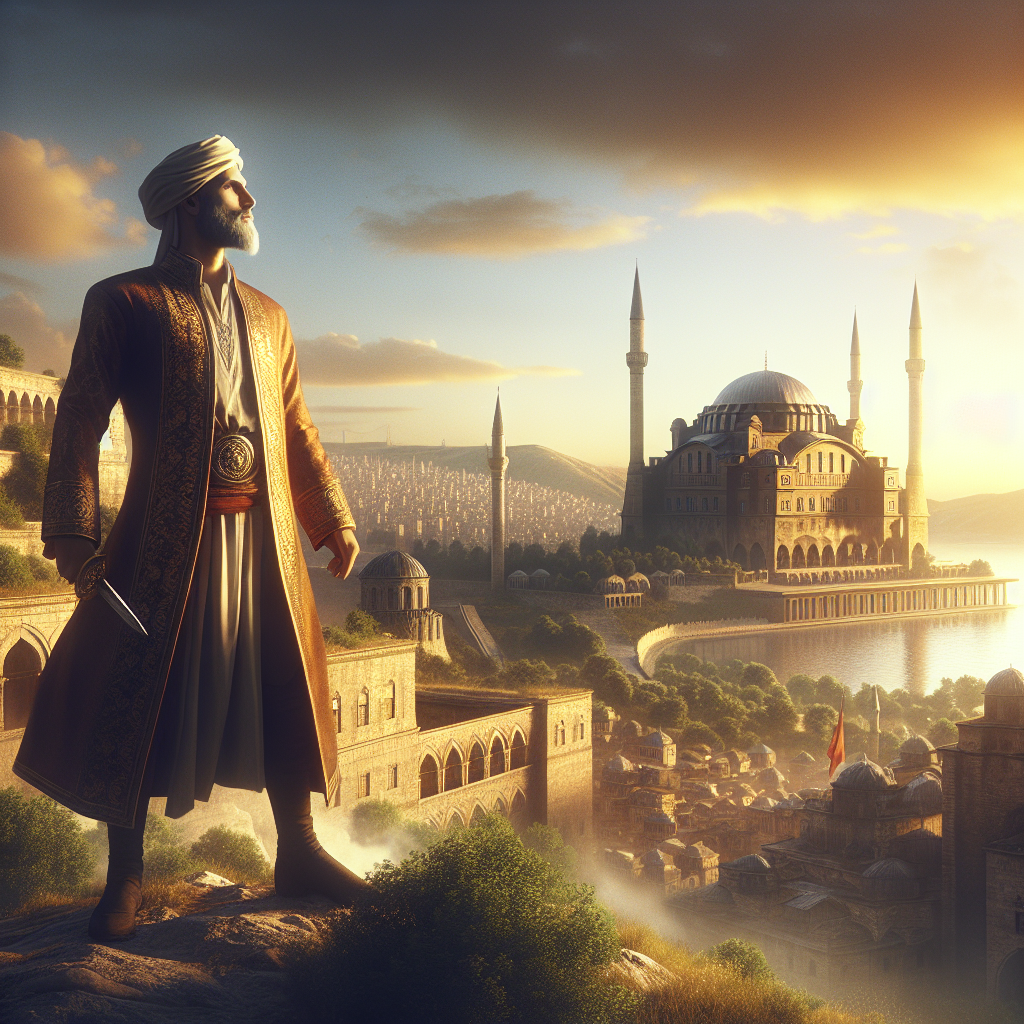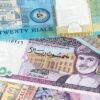A Noble Warrior’s Struggle in the Sands of Time
The era of the Crusades is often painted with broad strokes of conflict, religious fervor, and the clash of civilizations. Among the towering figures of this tumultuous period stands Salah ad-Din, a name that resonates with nobility, strategy, and a relentless pursuit for unity and peace. This blog post aims to unravel the intricate tapestry of Salah ad-Din’s life and his pivotal role in the Crusades, offering insights into the man behind the myth and his enduring legacy. Our exploration will guide you through the key events, strategies, and motivations of this remarkable leader, providing a comprehensive understanding of his historical significance.
The Rise of Salah ad-Din
Salah ad-Din, often known as Saladin, was born in 1137 in Tikrit, now part of modern-day Iraq. His early life was shaped by the turbulent politics of the region and the influence of his uncle, Shirkuh, a prominent military commander. Under Shirkuh’s tutelage, Salah ad-Din quickly rose through the ranks, displaying an aptitude for leadership and military strategy that would define his career. His ascent to power was marked by his appointment as vizier of Egypt, a position that allowed him to consolidate Muslim forces in the region.
During his tenure as vizier, Salah ad-Din implemented significant reforms aimed at stabilizing the economy and strengthening military defenses. His leadership style emphasized fairness and justice, garnering loyalty among his troops and respect from his adversaries. Salah ad-Din’s early successes laid the foundation for his later campaigns against the Crusaders, as he sought to unite the Muslim world under a common cause.
The Call to Unity

One of Salah ad-Din’s most defining characteristics was his unwavering commitment to unity among the Muslim states. At a time when internal divisions threatened to undermine resistance against the Crusaders, Salah ad-Din emerged as a unifying force. His vision extended beyond regional conflicts, seeking to create a cohesive front that could effectively challenge the Crusader presence in the Holy Land.
To achieve this, Salah ad-Din employed diplomatic and military strategies, forging alliances and subduing rival factions. His ability to balance diplomacy with warfare allowed him to expand his influence across the Middle East, culminating in the establishment of the Ayyubid dynasty. Salah ad-Din’s emphasis on unity was not only a strategic necessity but also a reflection of his deep-seated belief in the power of cooperation and shared purpose.
The Battle for Jerusalem
The capture of Jerusalem in 1187 marked a turning point in the Crusades and solidified Salah ad-Din’s reputation as a formidable leader. The city, revered by Christians and Muslims alike, had been under Crusader control for nearly a century. Salah ad-Din’s decision to reclaim Jerusalem was driven by both strategic and religious motivations, as he sought to restore the city’s significance to the Muslim world.
The Siege of Jerusalem was characterized by Salah ad-Din’s tactical brilliance and his commitment to minimizing unnecessary bloodshed. He negotiated terms of surrender with the city’s defenders, allowing for a peaceful transfer of power. This decision reflected Salah ad-Din’s reputation for chivalry and mercy, setting him apart from many of his contemporaries. The recapture of Jerusalem was a monumental achievement, reinforcing Salah ad-Din’s status as a leader of both military prowess and moral integrity.
The Third Crusade
In response to the loss of Jerusalem, the Christian world launched the Third Crusade, led by renowned figures such as King Richard the Lionheart of England. The ensuing conflict was marked by a series of battles, sieges, and negotiations, as both sides vied for control of the Holy Land. Salah ad-Din faced formidable opponents, but his strategic acumen and resilience enabled him to withstand the Crusader onslaught.
Throughout the Third Crusade, Salah ad-Din demonstrated his ability to adapt to changing circumstances and maintain his focus on long-term objectives. His interactions with Richard the Lionheart were characterized by mutual respect and a shared understanding of the complexities of war. Despite the challenges, Salah ad-Din’s leadership ensured that the Muslim hold on Jerusalem remained intact, even as other territories changed hands.
The Legacy of a Noble Warrior
Salah ad-Din’s legacy extends far beyond his military achievements. His dedication to justice, mercy, and unity left an indelible mark on the history of the Crusades and the wider Muslim world. His reign represented a period of cultural and intellectual flourishing, as he supported scholars, artists, and architects in their pursuits. Salah ad-Din’s emphasis on education and knowledge contributed to the development of a vibrant and dynamic society.
In addition to his contributions to the Muslim world, Salah ad-Din’s legacy is also recognized in the West. His reputation for chivalry and honor transcended cultural and religious boundaries, earning him admiration among his adversaries. Salah ad-Din’s story serves as a reminder of the power of leadership rooted in principles of justice and compassion, inspiring generations to come.
The Art of Strategy
Salah ad-Din’s success as a military leader was in part due to his mastery of strategic planning and execution. His ability to anticipate the moves of his adversaries and respond with calculated precision set him apart as a tactician. Salah ad-Din’s campaigns were characterized by careful coordination, effective use of terrain, and the integration of diverse forces.
One of his most notable strategic achievements was his use of hit-and-run tactics, designed to weaken enemy forces over time. By avoiding prolonged engagements and exploiting opportunities for ambushes, Salah ad-Din maintained the initiative and kept his adversaries off balance. His approach combined patience with decisive action, allowing him to achieve significant victories against numerically superior foes.
The Influence of Faith
Faith played a central role in Salah ad-Din’s life and leadership. His commitment to Islam guided his actions and decisions, providing a moral framework that shaped his interactions with allies and adversaries alike. Salah ad-Din’s devotion to his faith was evident in his efforts to protect and preserve sacred sites, as well as his emphasis on religious tolerance.
Salah ad-Din’s faith also informed his approach to governance, as he sought to create an inclusive society that respected diverse beliefs and traditions. His emphasis on justice and compassion was rooted in his understanding of Islamic principles, which emphasized the importance of mercy and ethical conduct. Salah ad-Din’s faith was a source of strength and inspiration, motivating him to pursue a vision of unity and peace.
Lessons in Leadership
Salah ad-Din’s legacy offers valuable lessons in leadership that remain relevant today. His emphasis on unity, justice, and compassion serves as a model for leaders seeking to inspire and guide their communities. Salah ad-Din’s ability to balance strength with empathy, and his commitment to ethical conduct, provide a framework for effective leadership in times of conflict and uncertainty.
One of the key lessons from Salah ad-Din’s life is the importance of strategic vision. His ability to see beyond immediate challenges and focus on long-term goals enabled him to achieve lasting success. Salah ad-Din’s leadership was characterized by adaptability and resilience, qualities that are essential for navigating the complexities of the modern world.
The Power of Diplomacy
Diplomacy was a crucial aspect of Salah ad-Din’s leadership, as he sought to forge alliances and resolve conflicts through negotiation. His diplomatic acumen allowed him to build relationships with diverse groups, fostering cooperation and collaboration. Salah ad-Din’s approach to diplomacy was characterized by respect, understanding, and a willingness to engage in dialogue.
Throughout his campaigns, Salah ad-Din demonstrated his ability to balance military strength with diplomatic finesse. His negotiations with leaders such as Richard the Lionheart exemplified his commitment to finding common ground and achieving peaceful resolutions. Salah ad-Din’s legacy highlights the power of diplomacy as a tool for achieving sustainable peace and stability.
The Enduring Impact
Salah ad-Din’s impact on the Crusades and the wider world continues to resonate today. His legacy is a testament to the power of leadership driven by principles of justice, compassion, and unity. Salah ad-Din’s story serves as a reminder of the potential for greatness that lies within each of us, inspiring individuals to pursue their own noble struggles.
As we reflect on the life and legacy of Salah ad-Din, we are reminded of the timeless importance of integrity, courage, and resilience. His example encourages us to seek understanding and cooperation in our own lives, striving to build a world that reflects the values he championed.
Exploring Further
For those interested in learning more about Salah ad-Din and the Crusades, there are numerous resources available. Books, documentaries, and academic articles offer diverse perspectives on this complex historical period. By exploring these resources, readers can deepen their understanding of Salah ad-Din’s life and legacy, gaining insights into the challenges and triumphs of this remarkable leader.
Through continued exploration and reflection, we can draw inspiration from Salah ad-Din’s story, applying the lessons of his leadership to our own lives and endeavors. Whether in moments of conflict or cooperation, Salah ad-Din’s example reminds us of the enduring power of noble ideals and the potential for positive change.









